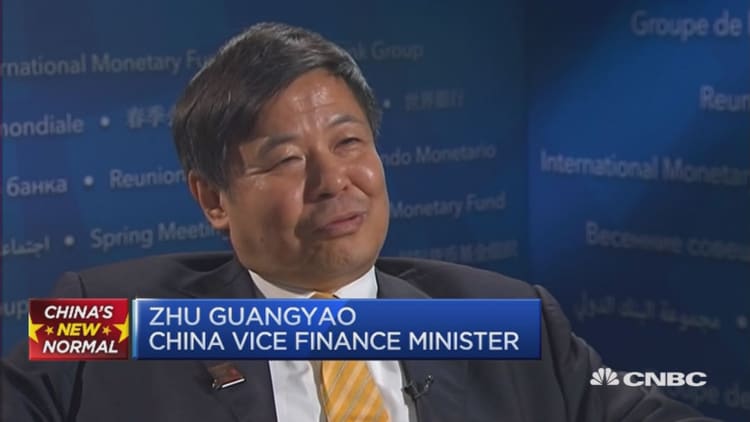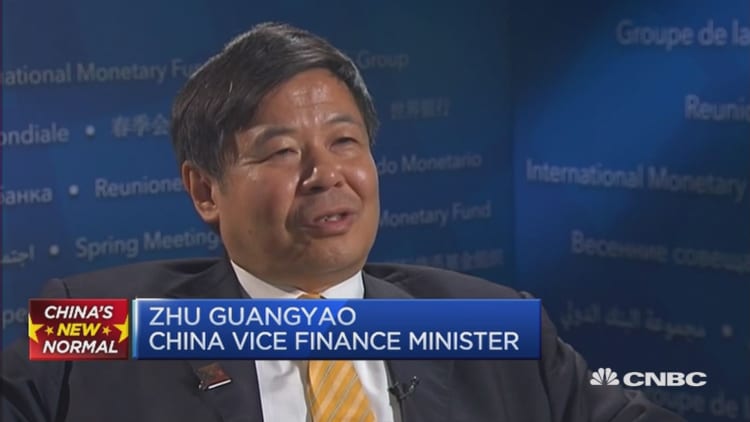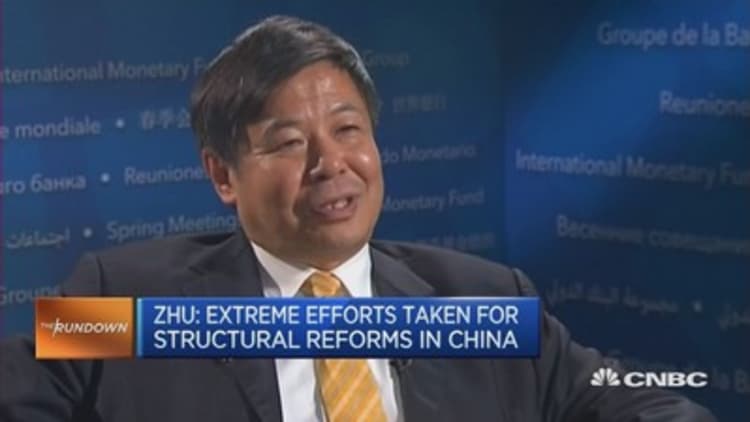


China's vice finance minister has praised Federal Reserve Chair Janet Yellen for her clear communication to financial markets and G20 partners and her cautious approach, telling CNBC that the mainland is hoping Fed policy will have a positive impact on its economy.
As a "real superpower," the Fed has a big spillover effect on the world, Zhu Guangyao said in an interview on Friday in Washington.
"We hope that's positive spillover and largely reduces negative spillover. We found the Federal Reserve very cautious in their process and (it) takes us into consideration," he said, noting that Fed policy is still largely based on the U.S. economic situation.
But as the mainland's economy slows amid a transition away from manufacturing- and investment-led growth and toward domestic consumption, some analysts believe Yellen's dovishness gives China breathing room to progress on its economic and currency reforms.
Stocks tumbled around the globe in August and early January after weakened against the dollar, raising concerns of a potentially significant currency devaluation. In August, China shifted the market mechanism for setting its currency's daily fixing against the dollar to a more market-based rate, which resulted in 2 percent decline in the yuan and spurred fears the country was engaging in a "currency war" to make its exports more attractive. China is also now looking at its currency against a basket of its trading partners' currencies, rather than the U.S. dollar exclusively.
Zhu strongly denied the devaluation of the yuan was aimed at achieving a competitive advantage.
"Our government made a very strong commitment. We joined the G20 commitment to avoid competitive currency devaluation. Certainly we are not using this currency devaluation to have a trade advantage. That position is very clear," he said.
He did however express concern over the slow pace of recovery in the global economy.
"Globally, the economic recovery is very slow and downside pressure continues to increase," Zhu said. He pointed out that the IMF has just downgraded global economic growth forecasts for 2016 to 3.2 percent from 3.4 percent.
Other headwinds were also a cause for concern, he said, such as geopolitical conflict, the refugee crisis currently gripping Europe and the upcoming referendum on whether the U.K. should leave the European Union.
On the last point, he was unequivocal.
"We strongly support a strong and unified EU," Zhu said.
He pointed to the strong interdependence of the integrated global economy, and warned against breaking away from a larger economic bloc.
"We must strengthen our dependence and strengthen our macroeconomic policies in particular," he said.



